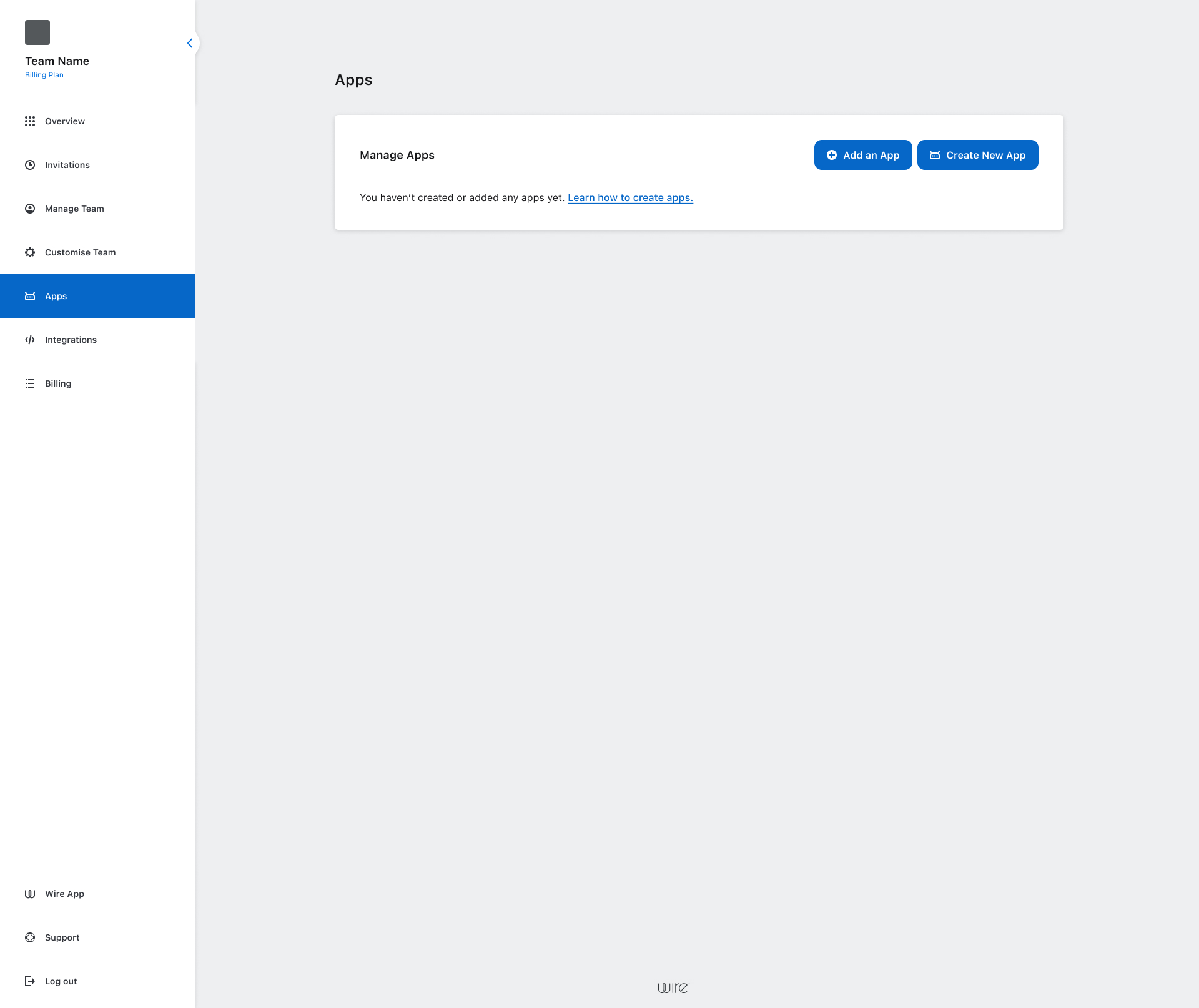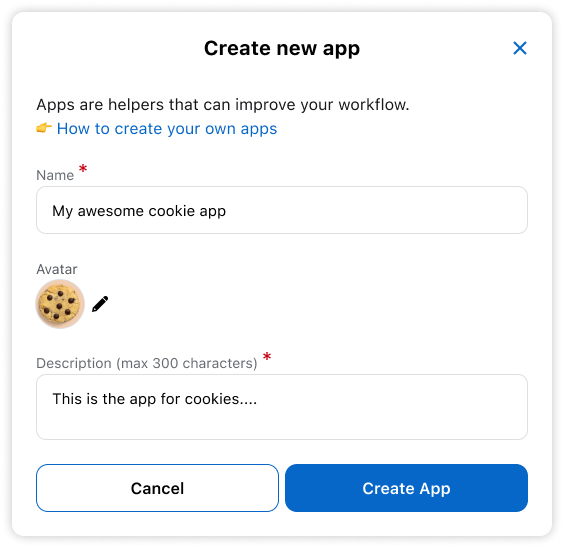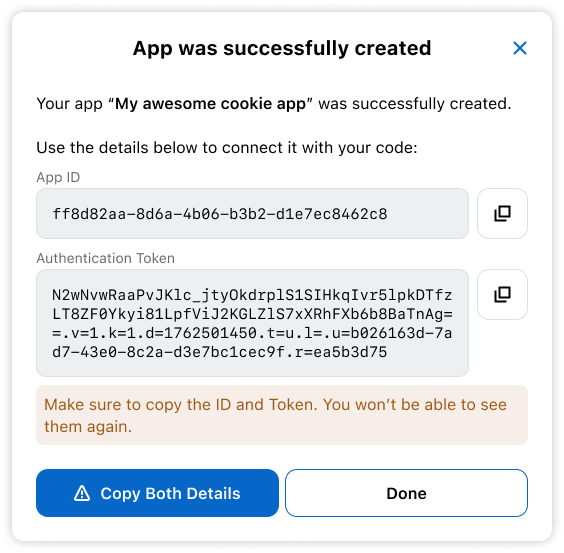Quickstart
In this guide you will create a basic App that can echo to received messages.
1. Creating an App
- Access Team Settings Dashboard and navigate to Apps
- Click Create New App button

2. Fill in the details
- Add your App's name, avatar and description
- Click Create App

3. Copy App ID and Token
When your App is created, an App ID and a Token will be generated. Copy and save them with caution as the Token cannot be retrieved after the dialog closes.

4. Include the SDK into your project
The inclusion of the SDK can be made via Maven or Gradle
Gradle
| dependencies {
implementation("com.wire:wire-apps-jvm-sdk:0.0.1")
}
|
Maven
| <dependency>
<groupId>com.wire</groupId>
<artifactId>wire-apps-jvm-sdk</artifactId>
<version>0.0.1</version>
</dependency>
|
5. Initiate the SDK
Handling Events
The SDK uses the WireEventsHandler to notify your application about events and messages. Override the methods that you need in this class to handle them however you want. The http connection, deserialization, authentication and decrypting are performed by the Application, so you will receive the event as a WireMessage
Here's a complete example showing how to initialize the SDK and handle received events:
| fun main() {
val wireAppSdk = WireAppSdk(
applicationId = "YOUR_APPLICATION_ID",
apiToken = "YOUR_API_TOKEN",
apiHost = "YOUR_API_HOST",
cryptographyStoragePassword = "YOUR_32_CHAR_STORAGE_PASSWORD",
object : WireEventsHandlerDefault() {
override fun onMessage(wireMessage: WireMessage.Text) {
println("Message received: $wireMessage")
// Add your message handling logic here, like storing the message,
// sending back another message, or triggering some workflow
}
}
)
// Start the SDK
wireAppSdk.startListening()
}
|
| class MyWireEventsHandler : WireEventsHandlerDefault() {
private val logger = LoggerFactory.getLogger(MyWireEventsHandler::class.java)
override fun onMessage(wireMessage: WireMessage.Text) {
logger.info("Message received: $wireMessage")
}
}
|
6. Echoing a received message
In your onMessage implementation from MyWireEventsHandler you can echo a message as:
| override fun onMessage(wireMessage: WireMessage.Text) {
val message = WireMessage.Text.createReply(
conversationId = wireMessage.conversationId,
text = "${wireMessage.text} -- Sent from the SDK",
mentions = wireMessage.mentions,
originalMessage = wireMessage
)
// The manager is accessible through the inherited WireEventsHandler class.
// It is used to manage the Wire application's lifecycle and communication with the backend.
manager.sendMessageSuspending(message = message)
}
|
7. Conclusion
With this basic setup you now have a running Echo App.
You can check other events in Wire Events


